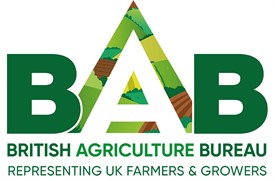The British Agriculture Bureau (BAB), which collectively represents the NFU, NFU Cymru, NFU Scotland and the Ulster Farmers Union in Brussels, has relaunched with a new logo and the publication of a new report Building our new relationship with Europe, which reaffirms its commitment to representing more than 70,000 UK farmers on the European stage.
Working together
In the report, the four UK farming union presidents said: “Whilst the UK has left the European Union, it has never been more important for farmers across Europe to work together as we collectively face challenges on a global scale.
“The UK farming unions prioritised remaining part of the Copa-Cogeca family to share experience and knowledge. Whilst the approaches taken by our policy makers may differ, the ambitions and needs of farmers remain aligned and we continue to support and learn from one another."
Embracing the latest science and innovation
“World-leading food production must continue to be at the heart of everything we do," they continued.
"We have a huge amount of work ahead of us, and the nature of that work is evolving. UK farmers are committed to working together, at both a national and international level, to embrace and follow the latest science and innovation, to seek new trading opportunities and defend our high standards.
“Through our BAB office we are committed to supporting British farmers to do this in Europe and to building our new relationship with the EU.”
Key priorities
The report sets out four key priorities for BAB:
- Trade and standards – UK trade policy must respect domestic production standards and support a strong, competitive agricultural industry.
- Science and innovation – policy must be science and evidence led with proportionate, risk-based approaches to encourage innovation and improve competitiveness.
- Environment – improvements in productivity through more efficient and careful use of natural resources can reduce farming’s emissions and environmental footprint, but this will only happen if farm businesses are given the policy framework they need to adapt and thrive.
- Animal health and welfare – research and evidence must be central to animal health and welfare policy.


